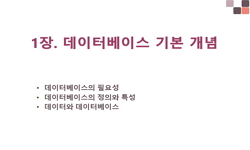Carnitine is considered a conditionally essential nutrient because dietary sources may become important under conditions which either reduce biosynthesis or increase urinary excretion of carnitine. Therefore, it is important to have a database for die...
http://chineseinput.net/에서 pinyin(병음)방식으로 중국어를 변환할 수 있습니다.
변환된 중국어를 복사하여 사용하시면 됩니다.
- 中文 을 입력하시려면 zhongwen을 입력하시고 space를누르시면됩니다.
- 北京 을 입력하시려면 beijing을 입력하시고 space를 누르시면 됩니다.
https://www.riss.kr/link?id=A103566120
- 저자
- 발행기관
- 학술지명
- 권호사항
-
발행연도
2002
-
작성언어
English
- 주제어
-
등재정보
SCOPUS,KCI등재,ESCI
-
자료형태
학술저널
-
수록면
293-298(6쪽)
- 제공처
-
0
상세조회 -
0
다운로드
부가정보
다국어 초록 (Multilingual Abstract)
Carnitine is considered a conditionally essential nutrient because dietary sources may become important under conditions which either reduce biosynthesis or increase urinary excretion of carnitine. Therefore, it is important to have a database for dietary analysis for carnitine content. Because there is limited data available for the carnitine content of Korean foods, this study was undertaken to analyze the total carnitine (TCNE) content of 146 commonly consumed Korean foods. TCNE concentrations were assayed using a modified radioisotopic method. Beef and pork contained 91.09 and 17.21 mg TCNE / 100 g weight, respectively. Fish and shellfish ranged from 0.28 to 24.87 mg TCNE / 100g weight. TCNE concentration in milk was 1.77 mg / 100 mL and cheese was 0.49 mg / 100 g weight. Cereals and pulses contained between 0 and 1.43 mg TCNE / 100 g weight. The TCNE concentration of most fruits and vegetables was between 0 and 0.7 mg 1100 g weight. However, mushrooms contained between 2.77 and 7.02 mg of TCNE / 100 g weight. Soy sauce, soybean paste and fermented red pepper soybean paste contained 1.05, 0.28 and 0.5 mg TCNE / 100 g weight, respectively. These results demonstrate that TCNE concentrations are high in meat, fish, shellfish and milk, but low or non-existent fruits and vegetables. However, mushrooms are a substantial source of vegetable derived TCNE. These data will be useful in establishing a database for determining the TCNE content of Korean diets.
동일학술지(권/호) 다른 논문
-
- 한국식품영양과학회
- Sung Jin Park
- 2002
- SCOPUS,KCI등재,ESCI
-
- 한국식품영양과학회
- Min-Ja Lee
- 2002
- SCOPUS,KCI등재,ESCI
-
Hypolipidemic Properties of Fermented Capsicum and Its Product
- 한국식품영양과학회
- Hyung-Joo Suh
- 2002
- SCOPUS,KCI등재,ESCI
-
Anticancer Effects of Leek Kimchi on Human Cancer Cells
- 한국식품영양과학회
- Keun-Ok Jung
- 2002
- SCOPUS,KCI등재,ESCI






 ScienceON
ScienceON






